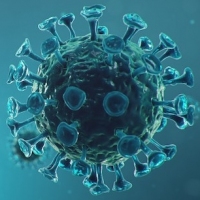Whilst water systems may not seem to be high on the priority list during the COVID-19 pandemic it is important for the health and safety of patients, staff, and visitors that all water systems are managed safely.
Evidence from China (Zhou et al., 2020) is that half of COVID-19 fatalities had experienced a secondary infection.
This suggests patients are at increased risk of secondary infections and for some months after recovery.
Bacteria may grow and develop biofilms, which, combined with the generation of aerosols from high speed powered hand-pieces and ultrasonic devices, may expose your patients to microbial pathogens including Legionella, Pseudomonas and Mycobacterium species.
These pathogens can proliferate in water systems and DUWLs between 20°C to 45°C, in the water during shutdown and this stagnated water will lead to the presence of biofilms.
Water from DUWLs will enter patients’ mouths, come into contact with open wounds and will be swallowed or aspirated by patients.
Vulnerable patients such as those suffering from chronic respiratory diseases, alcoholics, diabetics and immuno-compromised patients may be at increased risk of respiratory infection or colonisation from inhaling contaminated aerosols during dental treatment.
In addition, there will potentially be an occupational risk to the dental team from exposure to contaminated aerosols that may be produced from equipment connected to DUWLs.
Where your surgery is likely to be shut down for several weeks then decommissioning and recommissioning of the water system and DUWL will be required.
In the event of prolonged shutdown (e.g. 2-3 months), it would be prudent to have some arrangements in place to disinfect the DUWL as per manufacturer’s instructions and to repeat this process as necessary depending on the timeline. If your DUWL have been shut down for 2-3 months there may be considerable biofilm formation and you may need to consider replacing the DUWL tubing. However, where this is not possible or practical then the DUWL should be disinfected as below.
Registered Managers of dental practices should consult their Water Safety Plan (WSP).This should already be in place and have been developed by someone who is experienced and competent to do so, together with the Responsible Person and ensure that the system is recommissioned safely and effectively.
CLIRA have continued and will continue to provide our service during the current COVID-19 pandemic, we have over 35 years of experience within the water hygiene industry and our Director Arthur Norbury is a member of the prestigious Institute of Healthcare Engineering and Estate Management. Please do not hesitate to get in touch with any questions or advice on how to safely and effectively recommission your building as the HSE will simply not accept the COVID-19 lockdown as an excuse for non-compliance and breaches to Legionella control and management.
Call our office on 01743 247942 or email us at enquiries@clira.co.uk.
Back